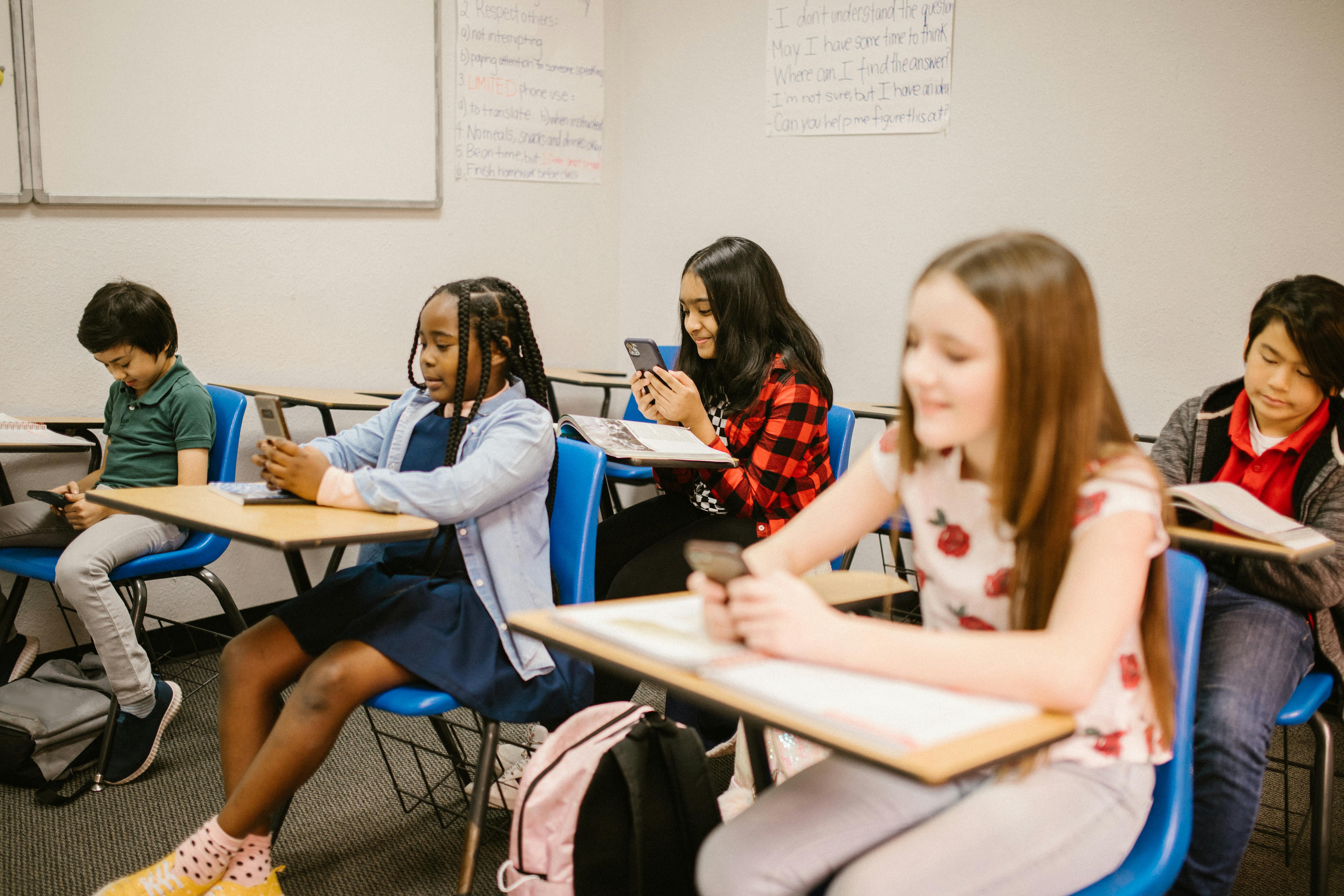
One of the more hotly debated topics in education is whether students should have access to their cellphones in school. Glenn Robbins, Superintendent of the Brigantine Public School District in New Jersey, speaks with us about the potential positives and negatives of a cellphone ban in schools and where we go from here.
Cellphones have become one of the most important pieces of technology in our lives as these offer a way to stay connected with family, friends, and emergency contacts. But cellphones can also create a distraction in the classroom. Is a cellphone ban the right way forward?
“I think it’s a proven statistical point,” Robbins says. “In the last couple of years, you’ve seen discipline numbers go up. You’ve seen academic struggles go up, and the question is whether that was from the closures where the lockdown happened. You see the academic struggles that some of these kids have who were virtual or not in school for a year or two. You hear a lot of administrators and teachers talking about respect and discipline not being to their liking.”
The pandemic has changed how many students and teachers view in-person school, but one thing that hasn’t changed is students stay in contact with their friends, and that’s with their cellphones. But cellphones have many other uses outside of communication. Does that alter our considerations when it comes to cell phone bans?
“The biggest way that I look at this is the equity piece, and what I mean by that is you have kids of various backgrounds coming to your school,” Robbins says. “They might only have a cell phone in their household. It might be a tablet. They might not have an updated laptop or Chromebook, whatever it may be. So when the teacher sends the student home with homework, they might not have the accessibility of all these different apps and programs [that we are using]. So that’s a part that I’m a little concerned about.”
Dealing With Technology-Based Issues Such As Cyberbullying
Cyberbullying is much more prevalent now because of the amount of access children have to connected devices and social media. Would a cellphone ban eliminate cyberbullying altogether?
“I’ve seen articles of people talking about trying to get rid of cyberbullying,” Robbins says. “My question is what happens when the dismissal bell rings at the end of the day? What is the first thing a kid does? They take out their phones. And from the end of the school day until they come back the next day, they’re teaching themselves what to do and what not to do on their devices.”
Focusing efforts on strongly promoting digital literacy during the school day can help inform students on proper device use.
“[We can] show them the possibilities on how ethical use of a device can help them become successful citizens,” says Robbins. “I often think about AI. How do we use this? How do we look into this? How do we go deeper? How can we use it in different lesson plans? Once again, if we don’t show them, they’re going to go home and download who knows what.”
Making students understand the implications of their actions is also critical. “We bring in our local prosecutor, he works with our local police department and talks about things you shouldn’t be doing on cellphones and so forth,” says Robbins. “Those conversations need to be had instead of just shutting them off and putting them away.”
How Far Would A Cellphone Ban Reach?
Banning cellphones in school mostly pertains to students, but what about teachers? Should teachers and administrators also not be allowed to use their cellphones in an educational setting?
“Technology is only going to evolve,” Robbins says. “The businesses that [students] are going to work in may not be an iPad business. It might be that they’re working remote, using any technology you have to get the job done. This gives you the freedom and autonomy to do your job. I look at it from a role model perspective. If we’re telling students they can’t have their phones, and then you have teachers using them or administrators using them, what messages does that send? Are we supposed to be role models? Are we supposed to show [students] how to properly use technology? Sometimes, I question that.”
Regardless of how you look at a cellphone ban, it is evident that students have a unique opportunity to learn how to interact with the digital world inside of a classroom. Whether or not teachers take the chance to embrace that philosophy is up to the decision makers.
Related:







